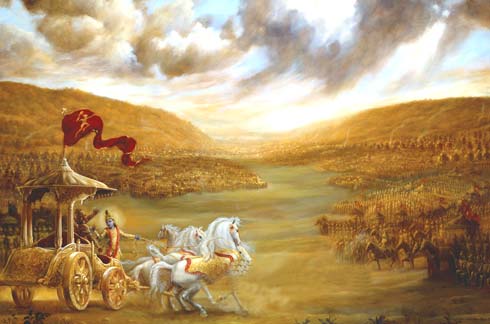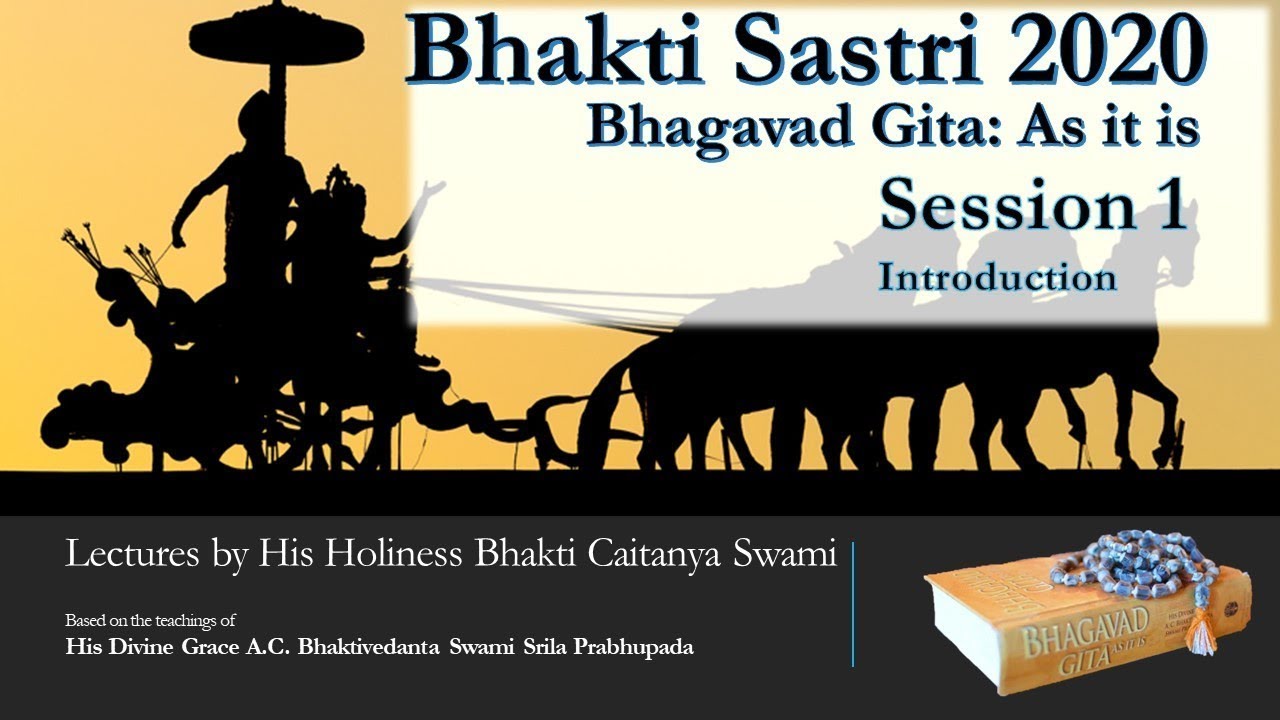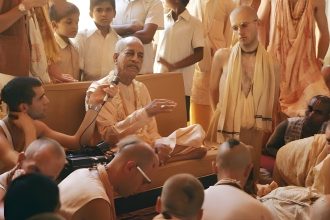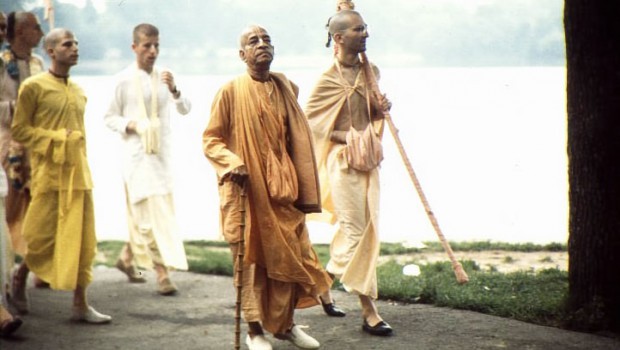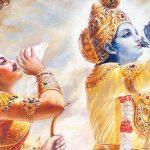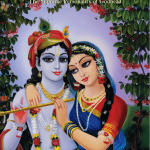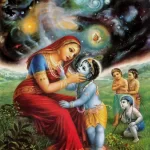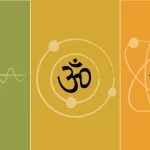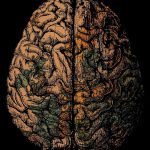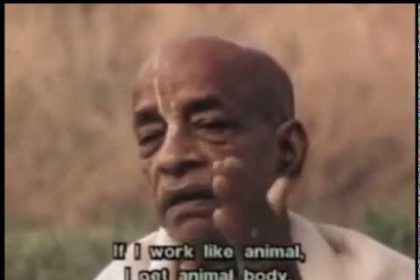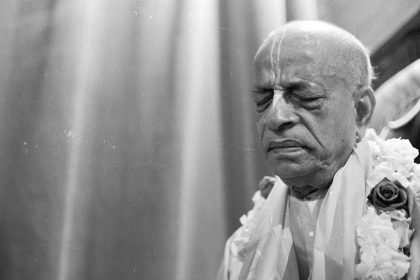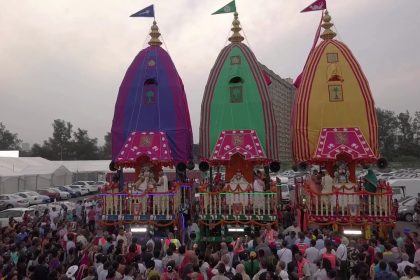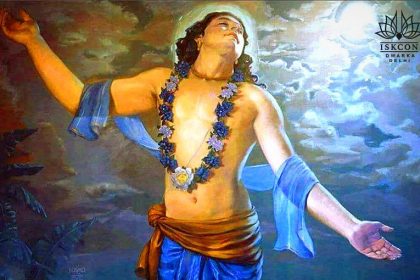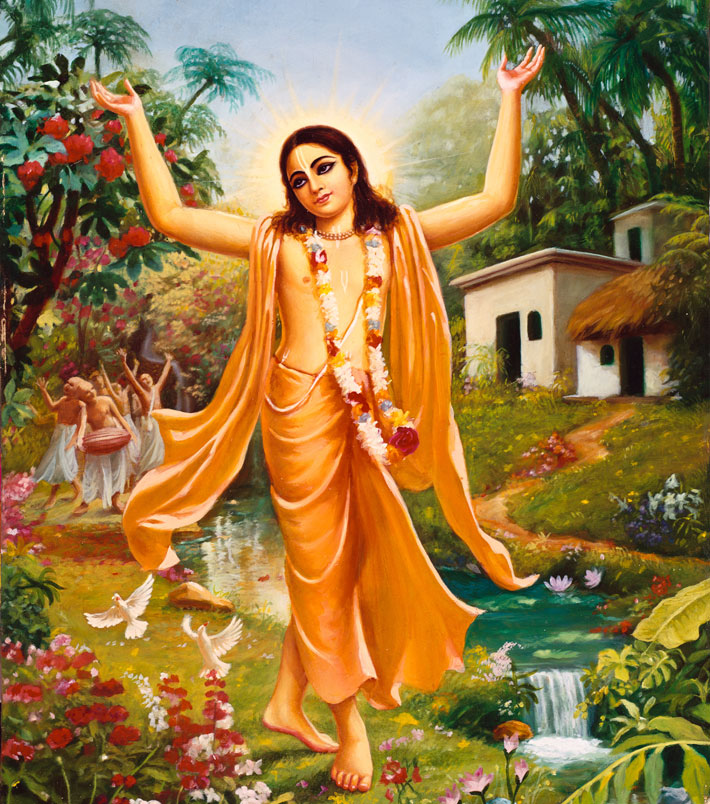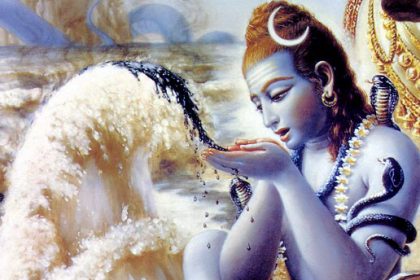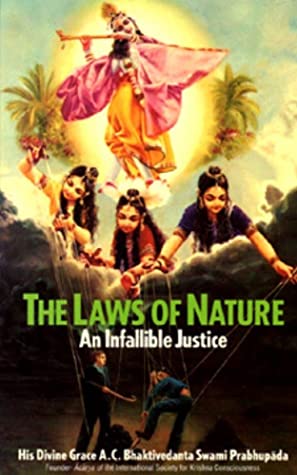Morning Walk
—
Durban, October 13, 1975 (New-2003)
Prabhupāda: And this side, they are coming from Europe?
Puṣṭa Kṛṣṇa: This side, coming from the oil countries, coming down the coast, and also coming… (break)
Prabhupāda: How long they can stay in the water?
Puṣṭa Kṛṣṇa: If it’s warm weather they can stay all day.
Prabhupāda: Acchā?
Puṣṭa Kṛṣṇa: In the cold weather, a few hours. They put on these black suits made out of a certain fabric—it’s called a wet suit—and they are able to stay in the water much longer. It insulates, insulates the body from the cold water.
Prabhupāda: Going for surfing?
Puṣṭa Kṛṣṇa: These gentlemen? No, I don’t think so. These young boys are. (break) …surf, we tell them, “Yes, we surf in the ocean of bhakti-rasa.”
Prabhupāda: Bhakti-rasāmṛta-sindhu. (break) … karma bandha phasa: one after another. Asate vilāsa: material enjoyment means implicated in unnecessary activities. If people are satisfied, plain living, then these things are not necessary: go into the ocean, find out oil, then bring it in the port, then distribute it, so many, one after another. That, this kind of civilization, they think it is advanced. And to live very plainly, minimizing this unnecessary activity, they think it is not civilization.
Puṣṭa Kṛṣṇa: Primitive.
Prabhupāda: Primitive, yes. But primitive meat-eating is continued. That is not to be stopped, primitive drinking and meat-eating.
Puṣṭa Kṛṣṇa: Would you like a tissue, Srila Prabhupada? A tissue?
Prabhupāda: No. (break)
Puṣṭa Kṛṣṇa: … it is misdirected and simply based on sense gratification, has no purpose. So people may question us that we are putting forward a civilization which India had practiced for thousands of years.
Prabhupāda: Why you speak of India?
Puṣṭa Kṛṣṇa: Well, because when we speak of Vedic culture, at least contemporarily speaking, people think of India. Even few hundred years ago, all the ācāryas…
Prabhupāda: All right, India. Then?
Puṣṭa Kṛṣṇa: So then the point is that they criticize that how we can preach such a civilization to the Western countries if even it’s not working in India today. Although theoretically it’s perfect, practically it’s not working.
Prabhupāda: No. Practically, because you have preached your culture in India; therefore they have lost their own culture. The Western, the Britishers were for two hundred years and they preached. Their policy was to kill the Indian culture. Because that report of Lord McCauley, after studying Indian situation, the report was to the Parliament that “If you keep India as Indian, then you will not be able to rule over them,” so therefore there was regular policy to kill Indian civilization. And because they were on the governing power, they could do it. Therefore India lost its own culture and victimized by the Western culture. This is the position. Just they are learning how to eat meat, how to drink wine, how to dress them with coat and pant, how to go to the hotel, illicit sex—these things are…
Puṣṭa Kṛṣṇa: Imported.
Prabhupāda: In India it was unknown. They did not know. In our childhood we have seen that they did not know how to drink tea even.
Puṣṭa Kṛṣṇa: Tea?
Prabhupāda: Yes. Nobody would drink tea, no family. We have seen it. And for drinking, for drinking tea, drinking wine, regular propaganda was done. There was a tea assess(?) (tea sets?) committee. Men these foreigners, they began to grow tea in India in the beginning for exporting to Europe and America… Later on, they began to pay some tax to the government. That was known as “tea assess(?) committee.” The tea assess(?) committee, in order to popularize drinking tea, they used to hold stall, just like here in park and public places, and they would prepare very tasty tea and distribute free.
Puṣṭa Kṛṣṇa: Free.
Prabhupāda: Yes. And advertise, “If you drink tea, then you will not feel very much hungry. Your health will be improved,” and so on, so on. In this way they distribute pamphlet and giving free. Just like we distribute prasādam, they used to distribute very tasteful tea, and people liked it: “Oh, it is very nice.” Then they began to drink. Vigorous propaganda. And culturally, in our school days they wrote… One Mr. N. Ghosh, he, bribed by the Britishers, he wrote one book, England’s Work in India. So all the, just like Sati rites…
Puṣṭa Kṛṣṇa: Sati rite.
Prabhupāda: Yes. That “Later on, after the death of husband in some places the wife was forced to go to the fire, so the Britishers stopped it. And they introduced railway for going to the pilgrims and so many, and they constructed bridges to make easy to go from one country to another.” And people took it very seriously, that British government is very nice. And they were publishing in outside country that “India is uncivilized. We are making them civilized. And as soon as they are civilized, then we hand over the charge to them. That is our noble mission.” And they were exploiting. All raw materials was being taken away and the necessities of India, especially cloth, was being supplied. And the local weavers, their hands cut off. So many thing they, tainting… And everything bad. Just like Jawaharlal Nehru. He became a first-class victim.
Puṣṭa Kṛṣṇa: First-class?
Prabhupāda: Victim of European propaganda. He used to take “Anything Indian, bad. Anything Indian, bad.” Not only he. Later on, all the so-called educated persons, they took it for granted that “Whatever is done in London, that is first-class, and whatever is Indian original, that is all bad.” And they controlled the native princes. So many things. It is a big history, how they killed India’s original culture. And then Hindu-Muslim riots, friction, fighting between Hindus and Muslims and dividing them.
Puṣṭa Kṛṣṇa: You said that the British instigated the Muslims.
Prabhupāda: Yes.
Puṣṭa Kṛṣṇa: How did they do that?
Prabhupāda: Oh, you… Nowadays you pay somebody, and he will do anything. So they appointed this Jhinna. He found that he is a very, intelligent lawyer. He was in the Congress. So there was dissension. There must be. So once this Jhinna was to be the president of the Congress, and the Patel, he frustrated. So Jhinna became angry, and at this moment the Britishers took it. He was a very intelligent barrister. So he instigated that, “You form a party, Muslim league. And whatever money is required for propaganda, we shall pay.” So regular subscription was raised from all big, big British companies, mercantile, to pay him: “Whatever money, you organize the Muslims against the Hindus.” And he did it.
Puṣṭa Kṛṣṇa: Jhinna, he was Muslim.
Prabhupāda: He was neither Muslim nor Hindu. He was an intelligent barrister coming from the… His father, means not real father, his father was Parsi, and he kept one Mohammedan girl. So the Jhinna is the issue of this… (to passerby) Hare Kṛṣṇa.
Indian: Hare Kṛṣṇa.
Puṣṭa Kṛṣṇa: Hare Kṛṣṇa. Today at 2:30 we have program at Peter Mather Hall. Yes. Come along.
Indian: Not Carlisle Street?
Puṣṭa Kṛṣṇa: No. Carlisle Street is the Arya-samāj temple. (laughs) So…
Prabhupāda: “So if you make propaganda and pay money to go against the Hindus and incite them”—gradually it developed. And the money was being paid by the Britishers. And he saw that money is coming. He had no feeling, national or… He wanted money, that’s all. For money you can purchase anything nowadays.
Puṣṭa Kṛṣṇa: Why did the British build all so many railroads?
Prabhupāda: For drawing raw materials from villages and bring it to the Calcutta, Bombay port and export to their country because their country does not produce anything. They’re starving. Still England, London, is maintained by importing goods from Africa, India, here, there. They have no food there. They can grow some potato, maybe… Potato only, That was the reason of expanding their empire. They had no food at home, England. They were manufacturing cotton cloth. That cotton was not grown in their country. It was brought from Egypt. They manipulated things in such a way. In America also they wanted to do that, but Americans, just understanding, separated, George Washington. In America I have heard that each family was to maintain a British soldier. You know that?
Puṣṭa Kṛṣṇa: No, I didn’t know that.
Prabhupāda: Yes. And they brought tea from India and other places and sell it in America. Their whole policy was they exploit the whole world and bring money in London. That’s all. And one who will do that, he will be honored by the state, given Earl of some small village. It has no value. Earl of this whole…, this man…, place, Lord of this. (laughter) A few acres of land and he is Lord of Chelmsford. And they will be given big, big post, governor, viceroy.
Puṣṭa Kṛṣṇa: Why did Nehru, though… He was so closely associated with Gandhi, and Gandhi was for getting the foreign products out. Why did Nehru go so much against that policy? Why did Nehru?
Prabhupāda: No, Nehru, he was searching after some big post. That’s all. All these political agitators, they want the big post, that’s all. You give them big post, and they will be satisfied. They will no more agitate. Political agitators means they want some prize post from the government. That’s all. Make them some minister, and they will be no more agitator.
Puṣṭa Kṛṣṇa: But he is considered to be very religious man in the eyes of the masses.
Prabhupāda: Who?
Puṣṭa Kṛṣṇa: Nehru.
Prabhupāda: Nehru?
Puṣṭa Kṛṣṇa: Yes. I know one Gujarati school, they have a book. And in the book it is taught that Gandhi, Nehru…
Prabhupāda: That is propaganda.
Puṣṭa Kṛṣṇa: Yes.
Prabhupāda: That is propaganda.
Puṣṭa Kṛṣṇa: (break) … in the last fifty years or so that especially that the Indian culture has been squashed and perverted by the British.
Prabhupāda: Yes.
Puṣṭa Kṛṣṇa: Is that because of mass communication, Prabhupada? Is that because of mass communication?
Prabhupāda: Mass communication or no…
Puṣṭa Kṛṣṇa: Radio, and things like this.
Prabhupāda: Yes, if you want to make mass communication, you can do anything. (break) Due to industrialization, all intelligent men, they came in the city. In the village it was deserted. So there was no improvement in the village, and people preferred to come to the city, means industry, business. So India’s basic principle was village life. Now that is lost. The intelligent class men, brāhmaṇa, kṣatriya, vaiśya, they left villages for earning more money in the cities, and only the śūdras, less intelligent class of men, less than śūdras, they remained. So what they will do? So village became deserted. Still you’ll go and see in Indian villages, especially in Bengal, so many big, big palatial buildings, they are lying vacant.
Puṣṭa Kṛṣṇa: In the villages?
Prabhupāda: Yes. Because the proprietor left and the poor cultivators, śūdras, they are accustomed to live in cottages. India’s civilization was based on village residence. They would live very peacefully in the villages. In the evening there would be bhdgavata-kathā. They will hear. That was Indian culture. They had no artificial way of living, drinking tea, and meat-eating and wine and illicit sex. No. Everyone was religious and satisfied by hearing—what we are just introducing—Bhāgavatam, Bhagavad-gītā, Purāṇas, and live simple life, keeping cows, village life as it is exhibited by Kṛṣṇa, Vṛndāvana. Kṛṣṇa, if He liked, He could have lived in the cities. (pause) So the education was meant for teaching people to hate everything Indian.
Puṣṭa Kṛṣṇa: Hate everything Indian.
Prabhupāda: Yes. That was the policy of education. So as soon as one became graduate and educated, he began to hate everything Indian original, and if he would get some clerk’s business, service in some office, and his life is successful. That is still going on. So our car is here?
Puṣṭa Kṛṣṇa: It’s just up here, Srila Prabhupada.
Prabhupāda: The brāhmaṇa became by caste brāhmaṇa. He will do everything nonsense and still, he remains a brāhmaṇa. But you can introduce the original Vedic culture in this Europe and America. You have understood. You can do it. By this material civilization they will never be happy, and it is risky. That they do not know. They do not believe in the transmigration of the soul. So irresponsibly… Or just like these elderly persons, how they are wasting time.
Puṣṭa Kṛṣṇa: Just sitting on the beach.
Prabhupāda: Yes. Not only sitting, they have no other engagement. They do not know how human life should be utilized. They do not know. They are simply taking consideration of the body, running or skating or this or that, but they have no other engagement. They do not believe that there is soul and that soul’s business is first business. They do not know that, neither they do accept it. They are under nature’s law, very simply explained in the Bhagavad-gītā, dehino ’smin yathā dehe kaumāraṁ yauvanaṁ jarā. By nature’s law you have to change your body. It is evident. Still, they will not believe. We’re changing body every moment, and they will say, big, big professors, that after the body is finished, everything is finished. This is ajñāna. And that is going on as education, whole world. “It is folly to be wise where ignorance is bliss.” The whole world is in ignorance, so we are giving them wise instruction. They are thinking, “These people are crazy men.” That’s all.
Puṣṭa Kṛṣṇa: How were the leaders, though, of India so weak when the British first occupied that they allowed this all to take place?
Prabhupāda: There was no Indian leader. That was occupied by the Mohammedans. They were deteriorating. Yes. Besides that, Indian mass of people, they were never trained to become nationalist. They thought, “Let anyone become king. It doesn’t matter. We… Let us live peacefully, and whatever due tax we shall pay. That’s all.” When the Mohammedans came the people did not think that these are foreigners. “It does not matter, Mohammedan, Hindu.” But they did not think so far that gradually it will deteriorate. Even Bhaktivinoda Ṭhākura, he has favored the British government because they did not interfere with the religious affair.
Puṣṭa Kṛṣṇa: (entering car) Bhaktivinoda Ṭhākura. Over the Muslims.
Prabhupāda: No, Britishers. The Muslims interfered. They wanted to propagate Islamism. Not all, some of them. But Britishers, although they were spreading Christianism, still, outwardly they were neutral about religious affairs. So Bhaktivinoda Ṭhākura preferred that “Britishers are good. They do not interfere with our religious affair.” So the idea is that India—you may say primitive or whatever you want—they wanted to make progress of the soul. They did not care who is ruling. So “Whatever tax is due we shall pay. Let us do our own business.” That was India’s attitude. They never thought in terms of nationalism. That was never educated. They were never educated.
Puṣṭa Kṛṣṇa: (to driver) Go down this street, Prabhu.
Prabhupāda: Nationalism was unknown to India. They never thought.
Bhargava: … allow the Muslims to enter and do so much damage to the Vedic culture?
Prabhupāda: Hm?
Bhargava: Why did Kṛṣṇa allow the Muslims to enter and do so much damage to the…
Prabhupāda: Kṛṣṇa is your father’s servant that you do something wrong and Kṛṣṇa has to check it? Is your Kṛṣṇa your father’s servant? Then why do you ask this question? If you allow somebody to cut your head, has Kṛṣṇa to come to save you? Why do you ask this nonsense question? You are Kṛṣṇa conscious. Samo ’haṁ sarva-bhūteṣu. If you cut your own head, what Kṛṣṇa will do? In the same term, nationalism, as Vedic culture is Kṛṣṇa’s national affair, your disease is there. Why Kṛṣṇa will come to save the Vedic culture? What business He has got? If you are spoiling it, then why Kṛṣṇa will come? Spoil, and suffer. (break) … the same question in a different way, “Why India? Why Kṛṣṇa?” as if Kṛṣṇa is Indian. Kṛṣṇa is Indian? Then why do you ask this question, that “Kṛṣṇa will come to save India’s culture?”
Bhargava: Not the Indian culture but the Vedic culture, Kṛṣṇa’s culture.
Prabhupāda: Vedic culture, He has given, Bhagavad-gītā. Why don’t you accept it? You don’t accept; then suffer. He has given His instruction. The government gives you the law. Now, when you violate, the government will come to stop you? You violate and suffer. Why do you expect that “When I violate the laws, the government men will come and stop me?” Why do you expect like that? Eh? The government can give you the law book. You consult and do accordingly. You’ll be happy. And if you don’t, against, the government man is not coming to stop you. You do and suffer. Kṛṣṇa says, “Whenever there is discrepancy, I come.” That is general, not for India. Vedic culture is not for India. It is for everyone.
Puṣṭa Kṛṣṇa: It’sjust that people have taken India as a model of our philosophy, and sometimes people judge our philosophy by India’s practical application.
Prabhupāda: That is a… That is a fact. India was practically following the Vedic culture. That’s a fact. But now they have given up, so what Kṛṣṇa can do?They have been victimized. So if you give up your own culture…
Puṣṭa Kṛṣṇa: But this propaganda is going on even here, that anything which is Indian is inferior, and anything which is European is good.
Prabhupāda: Yes, that is the propaganda always. That is going on. That I already explained, that this was the propaganda of the Britishers, “Anything Indian is bad.” You see, they wanted to stop our Ratha-yātrā in London as soon as they saw that it is becoming popular. Even in India the government doesn’t want that Kṛṣṇa consciousness movement should go ahead. It is the demonic principle—Kṛṣṇa should be cut down. That is the way of demonic civilization. Stop Kṛṣṇa consciousness. Now we are preaching, “No illicit sex, no intoxication, no meat-eating.” Do you think people like it?
Puṣṭa Kṛṣṇa: No.
Prabhupāda: Everyone is against this movement. So who is coming to save us? Nobody is coming. Kṛṣṇa is saving. Otherwise it would have been stopped long, long ago. I was thinking that “As soon as I shall propose all these things, immediately these American people will ask me to go back home. Instead of go back to Godhead, “You go back to India.” (laughter) So it is Kṛṣṇa’s kindness that you, a few boys and girls, have accepted this principle. Otherwise who likes this? Nobody likes. Nobody likes. Lord Zetland flatly said, “Oh, it is impossible.” This is the life and soul of the modem civilization. just see the advertisement-sex. You see, illicit sex. Who would like our movement? Nobody likes. What is this picture means? Sex, that’s all. So many advertise…, wine advertisement, meat-eating, gambling—everything. The modern life is going on the basis of these four principles of sinful life, and we want to stop it. Nobody likes it. Still, we are selling so many books and people are hearing us… (break) (out of car) Why the scientist does not make chemical composition egg?
Puṣṭa Kṛṣṇa: Yes.
Prabhupāda: Huh? What is your answer?
Puṣṭa Kṛṣṇa: They say that life is made of organic compounds.
Prabhupāda: That’s all right. You combine them.
Puṣṭa Kṛṣṇa: We can’t.
Prabhupāda: Then why do you say nonsense? What is the answer?
Puṣṭa Kṛṣṇa: Well, if we take these organic compounds and mix them together at the smallest level, then we can build up these compounds and make some kind of life.
Prabhupāda: Yes, make this chicken. You require so many chicken. Why do you take the eggs from other chicken? You come on, make it.
Puṣṭa Kṛṣṇa: I don’t think the scientists have ever been asked to make an egg before.
Prabhupāda: Simply cheating and taking huge sum of money. All bluff.
Puṣṭa Kṛṣṇa: Hare Kṛṣṇa.
Harikeśa: They may say “What is the use of creating an egg?”
Prabhupāda: Hm?
Harikeśa: “What is the use of creating an egg?”
Prabhupāda: You require so many eggs.
Harikeśa: “Well, the chickens are already doing that. We’re doing things that nature can’t do.”
Prabhupāda: No, no, our point is that you want to create life, so first of all begin this. Create chicken, and then we shall think of other important living beings. Point is that in order to produce life you have to take another life, assistance. You cannot… As you say, that life is made of matter, that is not the fact. Life is made of life. So you are taking the eggs from another life. And in the egg there is life. That you do not know. Sometimes they take it that egg is vegetable. No. What is that?
Harikeśa: Well, the egg is not fertilized, so it’s not yet a chicken. It’s just an egg.
Prabhupāda: So that’s all right. It is lump of matter. So you take a lump of matter and fertilize a life.
Harikeśa: Well, I’m convinced. There’s nothing… (laughing) … nothing left to say.
Puṣṭa Kṛṣṇa: The argument is that the scientists are claiming they can do so many big things, but they can’t even manufacture one egg.
Prabhupāda: That’s it. And these rascals are talking very big, big words. That has to be stopped, that “Don’t talk nonsense and bluff people and take high salary, simply cheating. Don’t cheat any more. Admit that you cannot do anything. You simply bluff. That’s all.” That is to be done.
Harikeśa: “Well, with all our research we’re finding cures to so many diseases. With our research…”
Prabhupāda: That, you nonsense, you go on doing, but no disease is stopped. You… Futile attempt.
Harikeśa: “But twenty years ago there was so much smallpox everywhere. But now…”
Prabhupāda: That is nonsense. You have stopped smallpox, but you have increased cancer. So what is the use?
Harikeśa: “Now we are finding a cure for that also.”
Prabhupāda: That’s all. Go on working like ass, (laughs) without any… Even if you have some medicine for disease, you cannot stop disease. You cannot stop death.
Harikeśa: “Well, man’s duration of life is getting longer.”
Prabhupāda: Rascal. (laughs)
Harikeśa: “Just like in the fourteen or fifteen hundreds people only lived to be about forty or fifty years old, and now they are living so long.”
Prabhupāda: They are living now twenty-five years. In India the average is thirty-five or twenty-five. After all, you are going to die. That you cannot check. (aside:) You have come. Namaskar (Hindi) (break) … very big scientist. They say that life is made out of chemicals. Now you just try to make life by combination of chemicals and fertilize it. Why they cannot do it? So many things. Simply people are being bluffed, and they are kept in ignorance, and they are flourishing at the expense of these rascals.
Indian man (1): That is right.
Prabhupāda: Yes. There is no real knowledge.
Indian man (1): No. They cash in on the ignorance of the people.
Prabhupāda: That’s it. (Hindi—break)
Indian man (1): Cheat everybody, I mean, get all the members and live on that. (break)
Indian man (2): Where does it have it’s place in Kṛṣṇa consciousness?
Prabhupāda: Oṁkāra is… Oṁkāra is sound representation of Kṛṣṇa. One who is unable to chant Kṛṣṇa, for them oṁkāra. Because there are many envious persons—they won’t chant Kṛṣṇa—therefore Kṛṣṇa has given them oṁkāra.
Indian man (2): And the swastika?
Prabhupāda: Praṇavaḥ. Praṇavaḥ sarva-vedeṣu. It is said in the Bhagavad-gītā, raso ’ham apsu kaunteya prabhāsmi śaśi sūryayoḥ, praṇavaḥ sarva-vedeṣu. Hare Kṛṣṇa.
Indian man (2): Swastika.
Prabhupāda: Swastika is also there, Vedic mark. Especially for the impersonalists. But we take direct, beautiful Kṛṣṇa, and worship Him. (break)
Puṣṭa Kṛṣṇa: When did civilization begin? Well, the first men, they were uncivilized. Then, by little bit of intelligence they developed different types of tools and weapons. When, they have no date, though.
Prabhupāda: Therefore his civilization—so much, that’s all. His standard of civilization, this much. (break) … no tree, even a small tree is considered big tree. (break) Man came from ape, so why man is not coming now from ape? Hm?
Harikeśa: It only happened once, and that was enough to start the whole thing.
Prabhupāda: Only once.
Puṣṭa Kṛṣṇa: It had to happen at least twice.
Prabhupāda: That is another rascaldom. We see the flowers and fruits are coming every season. Why once? This dogmatic, we have to accept? Our experience is that by nature’s way we find the same flower is coming again in the same season.
Puṣṭa Kṛṣṇa: Well, actually Darwin said that there’s a missing link.
Prabhupāda: You rascal, you say that. What is that missing link? Simply bluffing, and it is going on in the name of science. Just see the fun. Simply misleading, and people are so rascal, this civilized man, so-called, he is accepting as great theory.
Puṣṭa Kṛṣṇa: Accepting?
Prabhupāda: This Darwin’s theory as very big invention or discovery. Simply childish rascaldom. There is no reason; there is no sense. Man came from monkey—why not coming now? Stop once. So what kind of men came first?
Puṣṭa Kṛṣṇa: First there was very primitive man.
Prabhupāda: No, primitive…
Puṣṭa Kṛṣṇa: They think that he resembles a monkey very much.
Prabhupāda: So there are in Africa these men. They resemble that, what is called? That animal?
Puṣṭa Kṛṣṇa: Gorilla.
Prabhupāda: Gorilla. So these men are still existing. But why from gorilla they do not come?
Puṣṭa Kṛṣṇa: They don’t come from the gorilla.
Prabhupāda: Africans, I have seen, they look like gorilla. So why now from gorilla the Africans or any black man is not coming? Then the question is the black man… We have got experience. The black man come. And wherefrom the white man came? Is there any white gorilla?
Puṣṭa Kṛṣṇa: No.
Prabhupāda: No. Then white man, how did he come?
Harikeśa: Well, sometimes there is a freak of nature, and the pigments that are in the skin…
Prabhupāda: Simply it is for Darwin, “sometime.” To support his rascaldom, nature has to serve him “sometimes. “Just see. We have to believe. Nature’s law is the same, symmetrical. Nature is not obliged to serve Mr. Darwin, the rascal. Sometimes. He says, “sometimes.” He did, and he knew it only and nobody knew. We have to believe that. Sometimes it was done, and it was revealed to Darwin. How he came to know? Nobody could understand. Only Darwin could understand? There was no other?
Puṣṭa Kṛṣṇa: They use the same argument against us, though, that… They use the same argument against us that so few people can understand God…
Prabhupāda: No. We don’t say like that. We say that God first spoke to sun-god, and sun-god spoke to his son, Manu, and Manu spoke to Ikṣvāku, Ikṣvāku spoke to his son. In this way are there. We don’t say, “The God spoke to me.” Evaṁ paramparā prāptam, that is quite reasonable. God said to Brahmā, and the Brahmā said to Nārada, Nārada said to Vyāsadeva, Vyāsadeva said to others. In this way we should know. If my father said to my forefather… My forefather said to my father or my grandfather, and the same news is coming in family way, then where is the wrong? We don’t say, “Darwin simply knew it.” No, we don’t say that. Evaṁ paramparā prāptam. He was a rascal number one, all these scientists, the so-called scientists.
Puṣṭa Kṛṣṇa: But how can we prove Kṛṣṇa scientifically?
Prabhupāda: First of all let them prove their theory. Then we shall prove ours. We are proving. We have got our own way. But why they are speaking all this nonsense? First of all let him prove that he is genuine. Then our turn will be next. Ours is very easy. Kṛṣṇa said to sun-god, and sun-god said to his son, his son, his son. It is coming like that. Where is the difficulty? Again Kṛṣṇa says, “Now it is mismanaged. It is lost, so I am saying again to you Arjuna.” So what Arjuna has understood, we are understanding the same way. How Arjuna understood it, that is written in the Bhagavad-gītā. Where is the… We have no difficulty. But you jump over: “There is link,” that “Once only from monkey came.” What is this nonsense? We have to believe this? Has it any sense? And because Mr. Darwin is speaking we have to accept it? We cannot…
Harikeśa: Well, certain changes take place. Just like when it is very hot, if you are in a hot climate all the time your blood thins.
Prabhupāda: That’s all right. No, no. This is not…
Harikeśa: Well, if you take that further, all of these changes that mount up to some big physical change.
Prabhupāda: No change is taken. The nature is working symmetrically always. The sun is rising in the morning. That is going on for million, million, million, millions of years.
Harikeśa: Gradually the change has taken place in a very scientific way, step by step.
Prabhupāda: What change has taken place?
Harikeśa: First the hairs fell off…
Prabhupāda: Morning… In the morning the sun rises on the eastern side. That is going on. What change has taken place? This flower, seasonal flower is… Now seasonal changes—winter, summer, spring—everything is going on symmetrically. There is no change. Because it is going on symmetrically, therefore we can say that February, next February will be very nice season here. Why? Because we have got experience last February, so we are certain the same thing will happen in the next February. Therefore we can say. There is no such change. Nature’s way. Prakṛteḥ kriyamāṇāni guṇaiḥ karmāṇi. It is very symmetrical. Everything is going on nicely, nature’s way.
Puṣṭa Kṛṣṇa: One of the strong points of Darwin’s theory…
Prabhupāda: I don’t find. Simply foolishness I accept. And rascal, foolish like you, will believe. (laughter)
Puṣṭa Kṛṣṇa: They argue that five thousand years ago they have no history, so they think that before that time…
Prabhupāda: “They think.” That is their rascaldom.
Puṣṭa Kṛṣṇa: Formerly there was no civilization. Therefore like monkey.
Prabhupāda: “They think.” That is their… We don’t “think.” We have got millions of years’ history. Why we shall think with them, with these rascals? They may think, the rascal. A child may think like something, but a elderly man will not think like that. Because they are thinking like that, we have to think with them?
Puṣṭa Kṛṣṇa: No.
Prabhupāda: Then? Because the rascals are thinking in some way, we have to believe that? First of all let them prove that they are sane men. They are all insane rascals. Why shall I take their words? We are taking words from Kṛṣṇa, who is accepted the Supreme by all the ācāryas, all the great sages. Why shall I go to this rascal Darwin? We are not so fools. We cannot accept.
Harikeśa: Well, the Bible is just some story. I mean, the Bible is just some story. Why should we believe that all of a sudden there was…
Prabhupāda: No, Bible is not authorized because it was compiled after Jesus Christ finished.
Harikeśa: No, the Bible was there… Old Testament has been there for thousands of years.
Prabhupāda: Old Testament, but what is going on, Bible…
Harikeśa: That Genesis, where it says the creation…
Prabhupāda: That is another thing.
Harikeśa: That’s just some story. Why should we believe it? There’s nothing else to believe. Why not believe this Darwin?
Prabhupāda: No, but you are not believing Bible. Bible, they say that the earth is square. So nobody is believing. So one point is sufficient, that it is not perfect. One point is sufficient.
Harikeśa: (laughing) It says the earth is square?
Prabhupāda: Yes, they… They say it. Formerly they believed that.
Puṣṭa Kṛṣṇa: Probably does.
Harikeśa: Oh, you mean flat.
Prabhupāda: You’ll fall down. If you go very far, you’ll fall down. Just like a child thinks. Bible, so many have been proved not authorized. Therefore Bible is not authorized.
Harikeśa: So we had this religion, and everybody was saying that this was the correct way, the official policy. So everybody knew this was nonsense. So Darwin is very scientific, so we accept the science.
Prabhupāda: What is that science? He said, “By chance, once, nature came.” Is that … ? That is not science. We don’t find, nature’s way, by chance it comes. No. As soon as you talk something nonsense, your whole statement will be accepted as nonsense because you are nonsense. What is the value of your statement? This is our test. Once you say something nonsense, you are wholesale nonsense. That is our test. You cannot say, “I am sorry. It was incorrect,” no. That is not allowed. Then your whole statement is incorrect. This is our… Harikeśa: Scientists are always doing that. They’re always saying that.
Prabhupāda: Therefore they’re all nonsense.
Harikeśa: “Last year we made a mistake. Now it’s all right.”
Prabhupāda: “Now we advance.” And what is the guarantee that it is all right? You will advance again. That means you are always incorrect.
Harikeśa: But people always think that it’s always getting better.
Prabhupāda: Therefore they are rascals. This is called māyā. They remain rascal; still, they think that they are advancing.
Harikeśa: Nobody thinks about that point, nobody.
Prabhupāda: If everyone is rascal, how he will think? We say mūḍha, all rascals.
Puṣṭa Kṛṣṇa: But when the early scientists, they were analyzing the body, they tried to find the soul. They would look for the soul in different parts of the body. They couldn’t find it with their microscopes.
Prabhupāda: That’s all right. That is his rascaldom. He’s a rascal. But soul is there. Then find out what is the missing point of a dead man. If there is no soul, something is missing.
Harikeśa: Well, actually they’ve pinned it down to a little bit of a molecule that breaks down.
Prabhupāda: That’s all right. Bring that molecule.
Harikeśa: They’re working on it.
Prabhupāda: Huh? Again, “working on it.” You see. This is bluff. This is bluff.
Harikeśa: Now they are inventing these different DNA and RNA molecules to change people by injecting them with these different things before they are born, making new people.
Prabhupāda: That is not very difficult thing. If you make some vegetable, if you add more sugar it becomes sweet. If you add more salt it becomes salty. That you can do. That is not very difficult. Our question is wherefrom the life comes? That is our… So they do not give any answer to this. That is their foolishness. What is that life? They say life developed from chemical. Now do it. By chemical combination make in one egg and give it to the fomenting machine. What is that? Fomenting machine? They have got heating machine?
Harikeśa: Incubator.
Prabhupāda: Incubator. Put it there. Then we shall accept your science. Why don’t you do that? Then your all theories are useless. This is practical.
Harikeśa: It seems much more practical to make a computer than to make an egg. I mean, a computer…
Prabhupāda: Whatever it may be, do it. And from that egg, you get chicken. Then I shall accept that you are scientist. Otherwise you are rascal, talking all madman’s proposal. Do it. Ask them. Write in the paper that “Prabhupāda was speaking like that, a challenge to the scientist: ‘Is there any scientist who can make an egg which is put in the incubator and gradually it comes to become …’”
Harikeśa: They will think we are completely crazy.
Prabhupāda: Huh? Well, then kick on their face, on their nose, rascal. We are crazy or you are crazy?
Harikeśa: But who wants to make eggs?
Prabhupāda: Huh? No, no, it is an experiment. You say life comes from chemical. So by chemical combination make an egg and do it. Begin from this. Then we shall see others. This is very easy. If you have already analyzed the yellow portion of the egg, the white portion of the egg and that outer plastering can be done. Nowadays there is… What is called?
Harikeśa: Plastic.
Prabhupāda: Plastic. It can be done. Do it.
Puṣṭa Kṛṣṇa: Make a chicken.
Prabhupāda: Yes. Make a chicken or so many birds. If not chicken, make a sparrow. Do something. Do something. Why you should be misled by them, these rascals? Challenge him. Challenge them publicly that “These rascals are misleading. Don’t accept them. They’re simply misleading.”
Harikeśa: Well, they’re the best we have. They’re the best we have. We have nobody. Who else is going to take care of us?
Prabhupāda: No, at least… We … just like we challenge, they cannot give answer. This should be proved. Then they will be proved that they are rascals.
Harikeśa: The whole scientific craze seems to be settling down anyway. It seems to be dying down.
Prabhupāda: It must die. The scientists, they admit now, “What we shall do? We have bluffed in so many ways. Now what is the next bluffing?” Their bluff, last bluffing, was going to the moon planet, and everything is failed. Then what is next bluffing? That is their problem, how to keep their big, big post?
Harikeśa: There’s nothing left to do.
Prabhupāda: Yes. They have finished all their theories. Still, they could not do anything. This is their position. (break) Margarine is also another bluff. It is oil; it is taken as ghee, er, butter.
Harikeśa: They say it’s very healthy for you.
Prabhupāda: They will say.
Harikeśa: It doesn’t have all those cholesterols.
Prabhupāda: Otherwise how they will sell? They will say. They will present anything nonsense in flowery language, and people will be cheated. That’s all.
Harikeśa: Americans can’t stand this butter and ghee. When we cook in these pure things like ghee, they become very upset.
Prabhupāda: Because meat-eaters.
Harikeśa: If it’s not impure they don’t like it.
Prabhupāda: Meat-eaters cannot digest ghee. Therefore in America, all of a sudden change of diet in our…, their stomach become upset. Just like animal, dogs, they cannot eat this ghee preparation.
Puṣṭa Kṛṣṇa: They can’t take it.
Prabhupāda: They can’t take it. So these meat-eaters, like dogs, they cannot digest. (break)
Puṣṭa Kṛṣṇa: In our philosophy, how did man come about? They’ll ask us what is our philosophy how man came about.
Prabhupāda: Man came from man. The first man is Brahmā. From him came. And Brahmā came from Nārāyaṇa, Viṣṇu. So this is easy. Brahmā appeared from Viṣṇu.
Puṣṭa Kṛṣṇa: So the first created being was a man.
Prabhupāda: Yes, Brahmā, a first-class man.
Puṣṭa Kṛṣṇa: Even before the plants. Even before the plants.
Prabhupāda: Yes, because man can create everything.
Puṣṭa Kṛṣṇa: That means Genesis in the Bible is wrong, because they say that first there were plants and then trees and then after man came.
Harikeśa: No, first they say that there was a man did that.
Prabhupāda: They say Adam and Eve.
Puṣṭa Kṛṣṇa: But they say first that the plants and the fish and the trees and the birds…
Prabhupāda: Then Adam, Eve.
Puṣṭa Kṛṣṇa: Then, afterwards, that after creating so many things, the plants and the trees, God was still lonely.
Prabhupāda: Brahmā … Brahmā, when he was created, he was in darkness. He could not see anything. “What to do? What … ? Why I am?” Then he tapasya, meditation. Then he was given intelligence. Then, gradually, everything…
Harikeśa: It seems that the Christians’ idea of God is our idea of Brahmā. Their God is like Brahmā. He’s just a creator.
Prabhupāda: What is their idea? I do not know.
Puṣṭa Kṛṣṇa: Their idea is that in the beginning there was darkness until God created the light. Then he created the different heavenly planets and the oceans and the inanimate things. Then He created…
Prabhupāda: Then it is like Brahmā.
Harikeśa: It is like Brahmā. And their heaven and hell is like the upper and lower planetary systems. It’s all little bit of knowledge.
Prabhupāda: Little difference, maybe, but the basic…
Puṣṭa Kṛṣṇa: They say that Adam was created…
Prabhupāda: Then their God created. God created. So that is all right. We also say God created Brahmā.
Puṣṭa Kṛṣṇa: Then they say that woman was created from a rib of Adam.
Prabhupāda: That is also correct. That is also possible. Created from God, so that is accepted. The description may be little different. That doesn’t matter. But God is the origin of all creation. If that is accepted, this is nice.
Harikeśa: They also have this Noah and his ark thing, where all the earth became covered with water.
Prabhupāda: Devastation.
Harikeśa: It’s like a Matsya avatāra.
Prabhupāda: So that is acceptable. Description may be little different. That doesn’t matter. But God is the origin. Vedānta-sūtra also says, janmādy asya yataḥ, that “Absolute Truth is that from where everything comes.” And the Bible, it is said, “God created this earth.” So that is acceptable. Then Darwin says that all of a sudden a man was created. Wherefrom it came out? What is the first creation according to Darwin?
Harikeśa: Very small microbes. And then they developed to many-celled animals and amoebas and…
Prabhupāda: So how this microbe was created?
Harikeśa: Spontaneous generation.
Prabhupāda: Spontaneous? And it is known to you only, Mr. Darwin? You are the only intelligent man. You could understand. And you are talking so foolish, and still, we have to accept it. (end)


